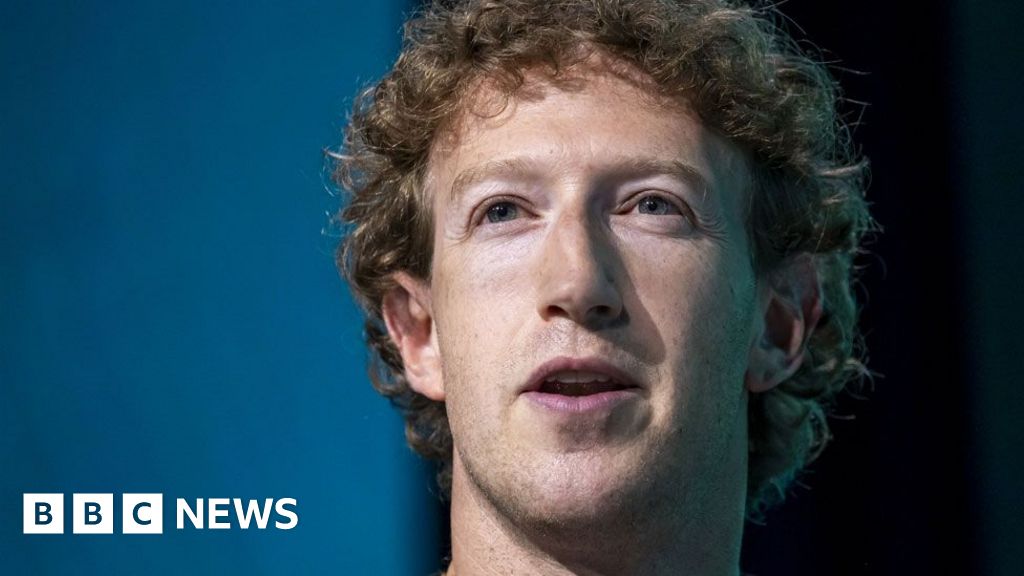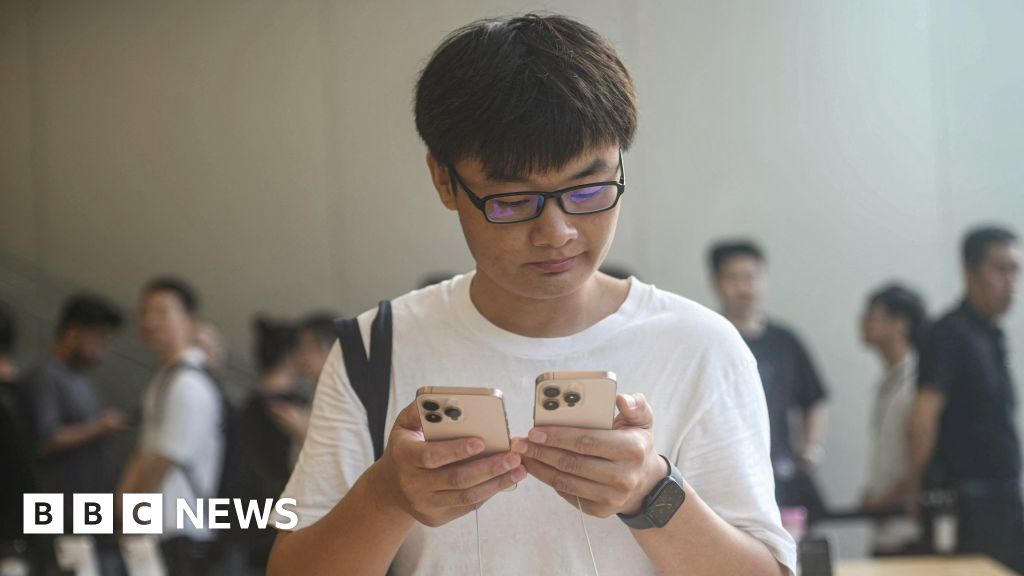I don't go to many parties, but I was hardly going to turn down an invitation to one hosted by pop superstar Olivia Rodrigo.
I know what you're thinking… a "grown man" whose idea of cool is getting Lego for Christmas, hanging out with superfans of one of the hottest properties in music.
Bad idea, right?
Fortunately, this particular party didn't even require me to leave the house, let alone dress up, have some drinks, and dance the night away with strangers.
Instead, it's the latest example of a music icon making their presence felt in the metaverse - an online space purists believe will one day see us all socialising and going to events as 3D avatars.
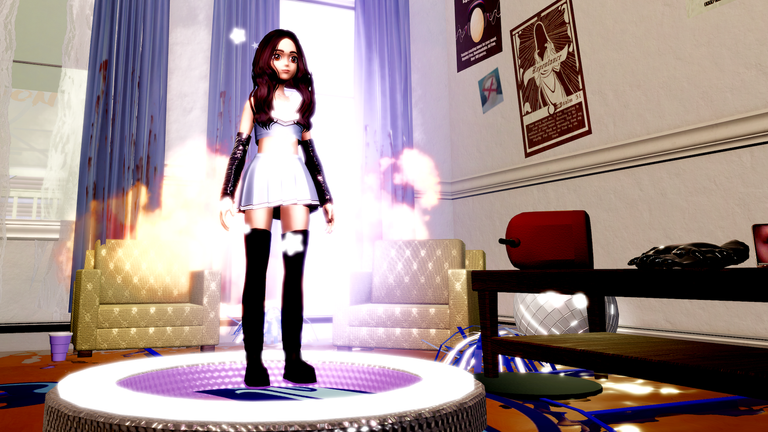
'Hey guys, it's Olivia!'
Rodrigo's house party takes place in Roblox. It's primarily a gaming platform, hugely popular with children, where players can make their own worlds and hang out.
For many fans, it's like a digital after-school club.
But with more than 200 million users, for Grammy-nominated Rodrigo it's an opportunity to engage a fan base far bigger than what could fit in any one of the concert venues she plays in.
"Hey guys, it's Olivia," the 20-year-old says upon my arrival.
"Welcome to my house party on Roblox!"
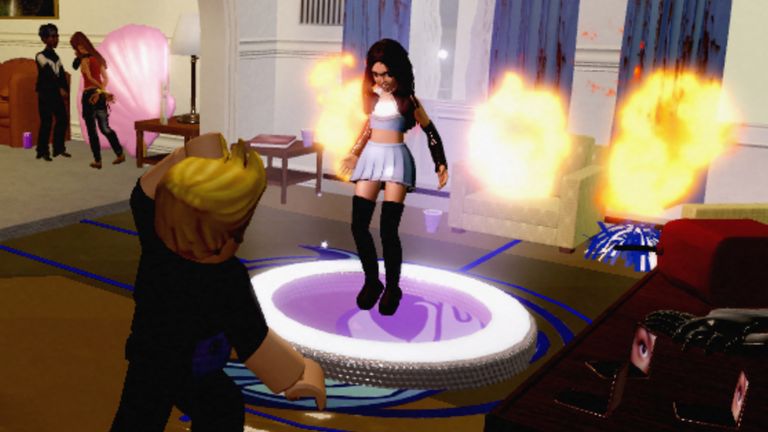
From there, I'm invited to buy items for my shockingly lifelike avatar inspired by Rodrigo's favourite music videos, before hanging out in her sound studio to listen to tracks from her latest album, Guts.
As someone who grew up with a younger sister who - regrettably - had access to a karaoke machine, it certainly captures the vibe of a teenage girl's bedroom.
Exploring the house, I come across not just a virtual Olivia, but other players, each searching every room for hidden Easter eggs referencing songs and other parts of the Rodrigo zeitgeist.
Read more:
Race to the metaverse: Fight to shape future of the internet
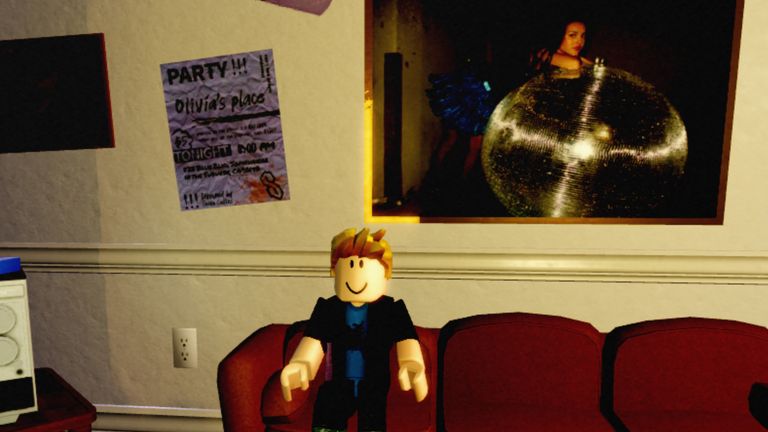
Meeting people where they are
According to Roblox's head of music, Karibi Dagogo-Jack, everything was "explicitly approved" by Rodrigo herself.
"It's about trying to meet people where they are," he says of why stars like her have taken an interest.
"There are 70 million people on Roblox every day spending a tonne of time here, up to three hours a day.
"Any talent that was wise would be thinking about how to reach the fans that are there."
For the Disney actress turned pop star, it's a hub for fans to "get together, hang out, have fun and be themselves", chatting mostly using emotes and text acronyms I didn't understand.
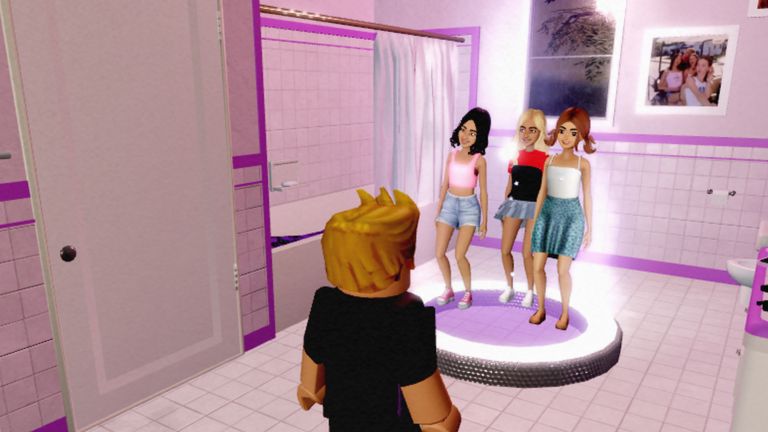
The whole thing made me feel rather old, for the first time appreciating what it must have felt like for my mum when I told her "lol" didn't mean "lots of love" (what a bereavement text that was).
But it really is big business. The team behind the party house, Sawhorse Productions, has previously worked on experiences inside Roblox for stars like Sir Elton John.
It's fair to say the 76-year-old is not exactly a man of the Roblox generation, but his digital space - complete with a yellow brick road - could help him attract a new wave of fans.
It helps that his iconic outfits make for some excellent avatar dress-up opportunities.
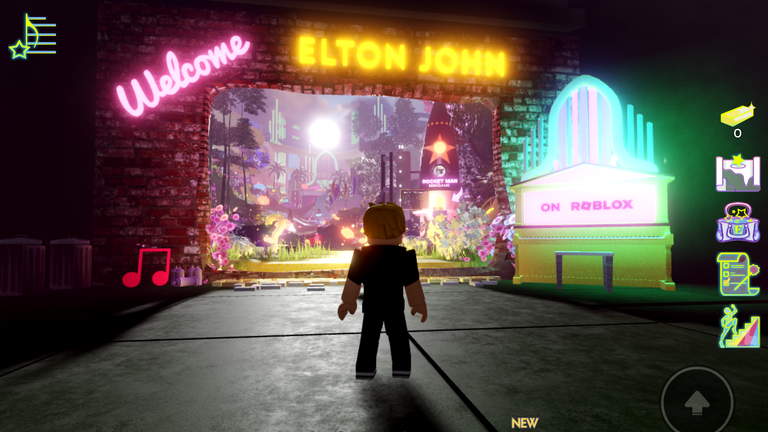
Digital vs physical
Others to have made their way into Roblox are Nicki Minaj and 77-year-old Cher, who had a Christmas-themed experience.
Like Sir Elton, her label Warner Records said it would "expose her to a new generation of fans".
Dagogo-Jack says they make the world's biggest stars "more accessible" to a generation who increasingly value the digital world as much as the physical one.
"For younger audiences, the hierarchy doesn't exist as much in terms of digital space versus physical," he says.
"If they go to an Olivia concert, they don't put that enjoyment at a lower level than they do in digital environments."
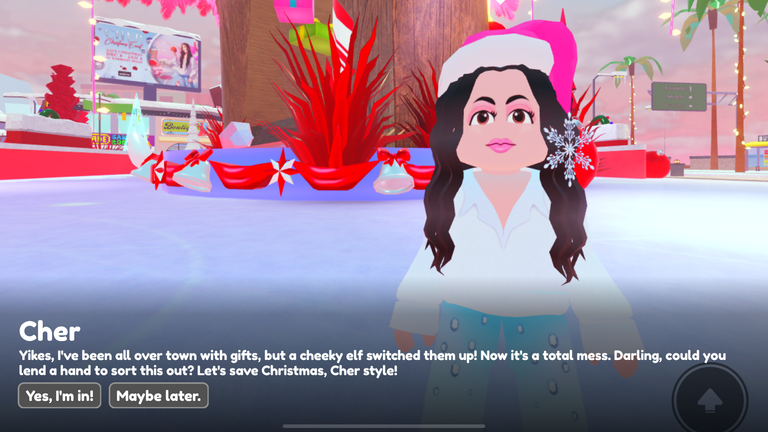
Accessibility is a big part of the appeal for artists and fans alike, and it's reflected elsewhere too.
The Weeknd recently hosted a live music experience inside Fortnite, following in the footsteps of Travis Scott and Ariana Grande, which has helped that game attract record numbers of players.
And lest we forget that one of London's hottest tickets are the Abba Voyage shows, which sees digitised avatars resembling the Swedish pop group perform on a physical stage.
Others are following suit on that front, including Kiss.
Whether it's immortalising ageing rockers in the real world or entering the metaverse, it's clear many artists are taking these technologies seriously as a way of engaging fans - and making new ones.
Like streaming services made their music accessible at the tap of a button, perhaps avatars could make the stars themselves just as available.
 (1).png)

